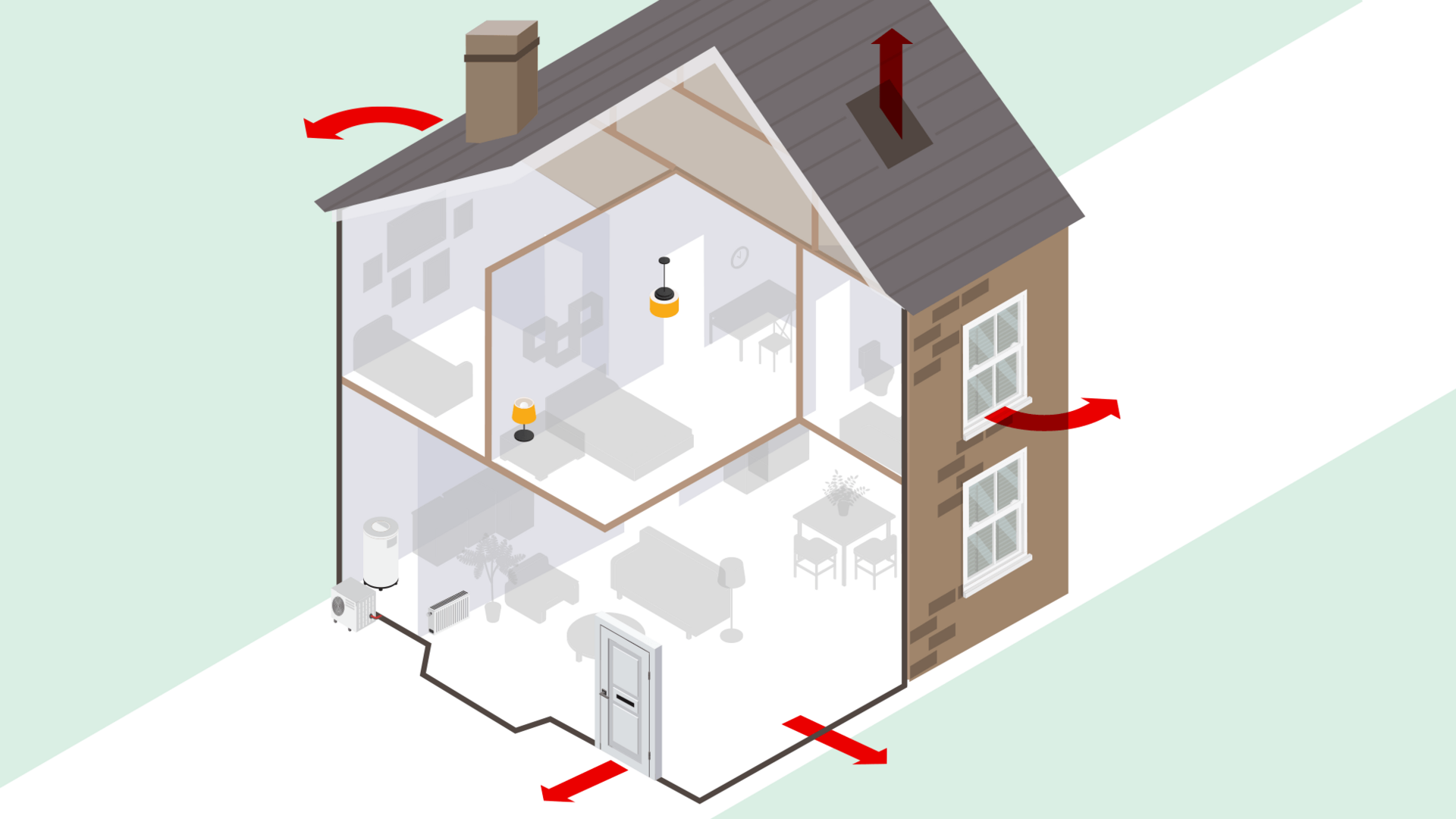Climate change: How can renters make their homes warmer and greener?
- Published

Erin lived in a poorly insulated home for more than three years
Making the UK's ageing housing more energy efficient will be key to the country reaching its climate targets - but campaign groups representing renters and landlords say more action is needed to drive improvements.
"At one point you could see your breath in the living room it was that cold," says Erin Davy.
The 29-year-old was renting a two-bedroom flat in Melbourn, Cambridgeshire.
The letting agent had given an estimate of around £80 a month for the electricity bill. But when she moved in, her direct debit ended up being just under £200 a month - and over winter her monthly bill soared to as much as £400 a month.
"Privately renting now is so expensive for young people as it is. Just the rent, let alone having a massive energy bill on top of it," she says. "It was crippling."
Erin's boyfriend had lost his job at the beginning of the pandemic so the couple were relying on her wage alone to pay the bills - and she had to increase her overdraft to cover it.
The ballooning costs meant they had to be careful about when to turn the heating on and rarely used the living room because it was so difficult to heat.
After asking their landlord to take action he replaced their old storage heaters with newer models - but it didn't help. The problem was the flat didn't seem to stay warm at all.
As a converted outhouse, the building was badly insulated, especially the floors and walls.
Poor insulation doesn't just mean higher bills for renters - it also has an impact on the environment. Heating buildings contributes to almost a quarter of all UK emissions and the more heat that escapes through walls and roofs, the more energy is wasted.
For Erin, things got so bad that she asked for an inspection by the council's environmental health team who found the inadequate heating was a health and safety hazard.
But the more she asked their landlord to make improvements, she says, the less responsive he became. Eventually the landlord served them with an eviction notice, saying he wanted the flat back for his own use.
Erin says the experience of being evicted was "horrible" but they managed to find somewhere else to live.
"We couldn't have stayed there - we couldn't afford it," she says. "I couldn't have done another winter in a freezing cold house."
So what can you do?
If you think your energy bills are too high or your home isn't staying warm, the first thing to do is check its energy performance certificate (EPC) online, external, says Dan Wilson Craw, from campaign group Generation Rent.
Buildings are graded between A - the most energy efficient - and G. In England and Wales, homes must have a rating of at least E to be rented out, with only limited exemptions, external. The government has also consulted on raising the minimum standard to band C.
In Scotland, the government plans to require privately rented properties to have a rating of at least C from 2025.
Damp or mould is another sign that your home may be poorly insulated.
There is government advice available online, external on how to make your home more energy efficient, which Mr Craw advises renters look at before approaching their landlord.
But if landlords refuse to take action you can ask the local council to carry out an inspection. Councils are responsible for enforcing health and safety standards of homes and if they find serious issues with damp or heating, they can force the landlord to make improvements.
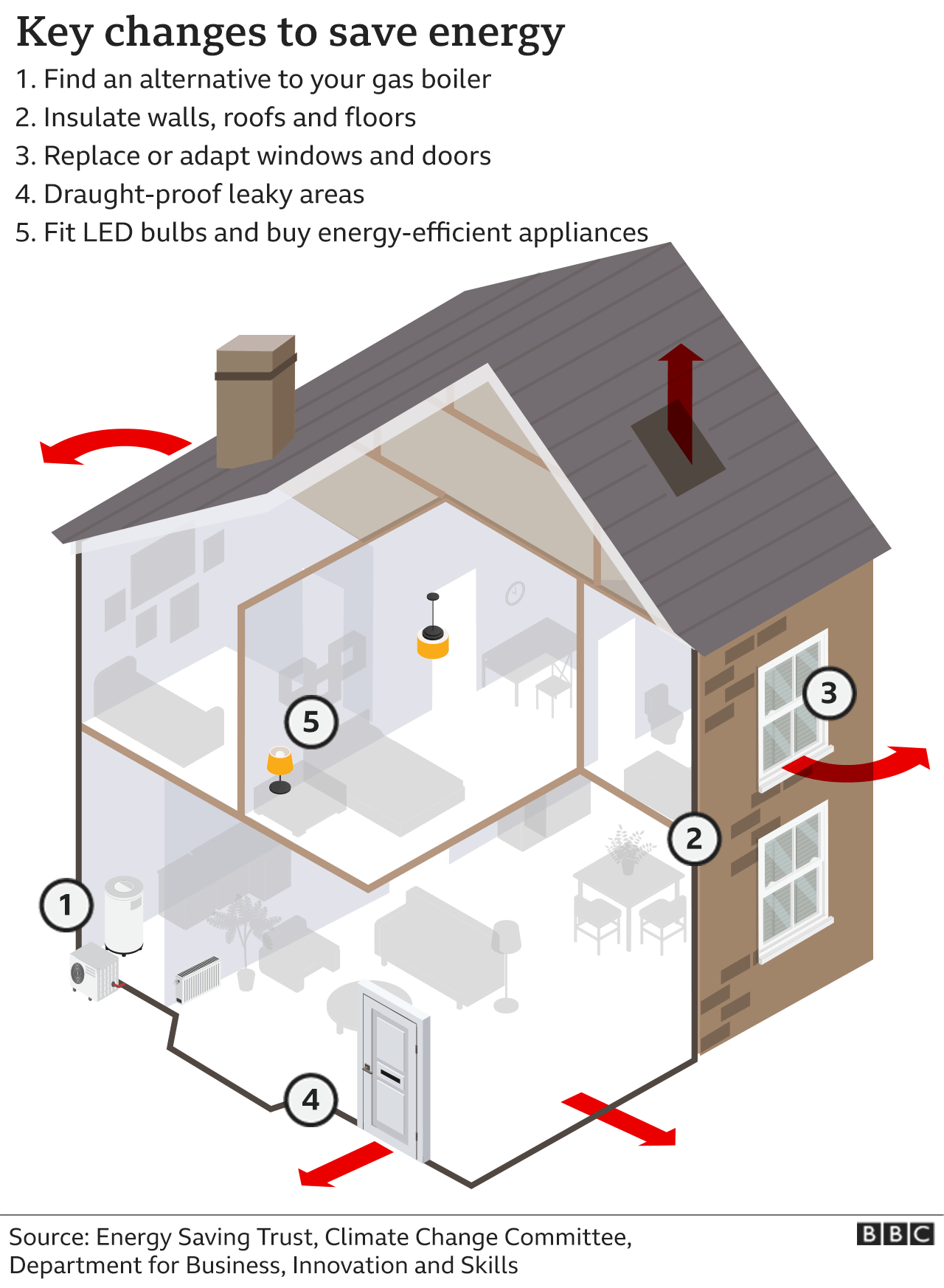
Mr Craw says there are also grants and funding, external available through some councils and energy companies to help make your home more energy efficient if you're on a low income.
However, research by Generation Rent suggests many renters are reluctant to demand or invest in improvements because they are unsure whether they will live in a home long enough to benefit from the cheaper bills.
Others may be worried that if their landlord does pay for improvements, they may increase the rent to recoup costs or even evict them.
Mr Craw says government plans to abolish section 21 "no fault" evictions, which would prevent landlords evicting tenants without good reason, will help give renters more certainty about how long they will be living somewhere.
Generation Rent also supports raising minimum energy efficiency standards for rented homes - and wants tenants to be able to claim back rent if landlords break the rules.
And the group wants to limit the amount landlords can increase rent for existing tenants to wage inflation, to avoid them upping the rent if they are forced to pay for improvements.
For landlords, the main barrier to making improvements is cost, according to Chris Norris, from the National Residential Landlords Association.
Nearly one in five households in England live in the private rented sector, but this type of housing tends to be older and more difficult to insulate.
The average cost of bringing a privately rented home up to EPC C standard is £7,646, according to the government.
And while landlords must pay for any changes to their property, they generally don't see the benefits of lower bills.
Mr Norris says the grants available are quite limited.
The government recently announced grants of £5,000 would be available to people in England and Wales from next April to replace their gas boilers with low-carbon heat pumps, to help cut greenhouse gas emissions.
But heat pumps can cost between £6,000 and £18,000 - not including any expensive new insulation that may also be needed - so the subsidy would not cover the total cost.
As well as more generous grants, the association also wants to see tax deducted from spending on energy efficiency to give landlords an extra financial incentive.
With gas prices surging, Mr Craw says making homes more energy efficient is even more urgent.
"If you could address it, you can improve standards of life for private renters and cut carbon emissions," he says. "But it requires action from the government to do that."
- Published2 March 2020
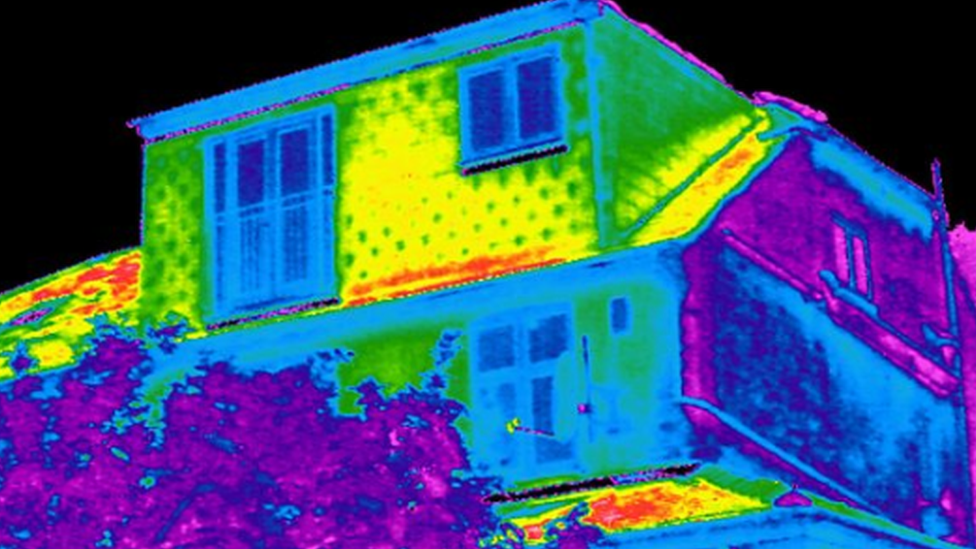
- Published22 March 2021
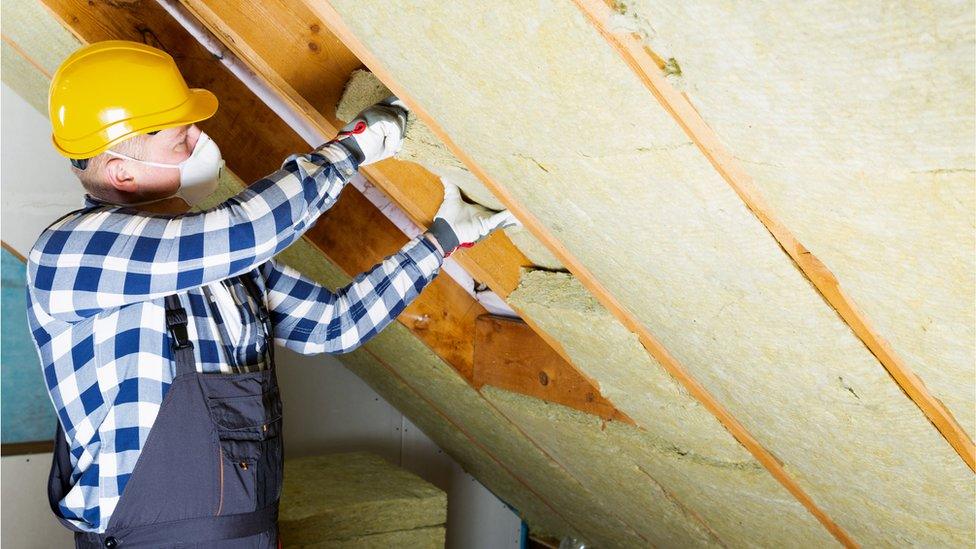
- Published19 October 2021
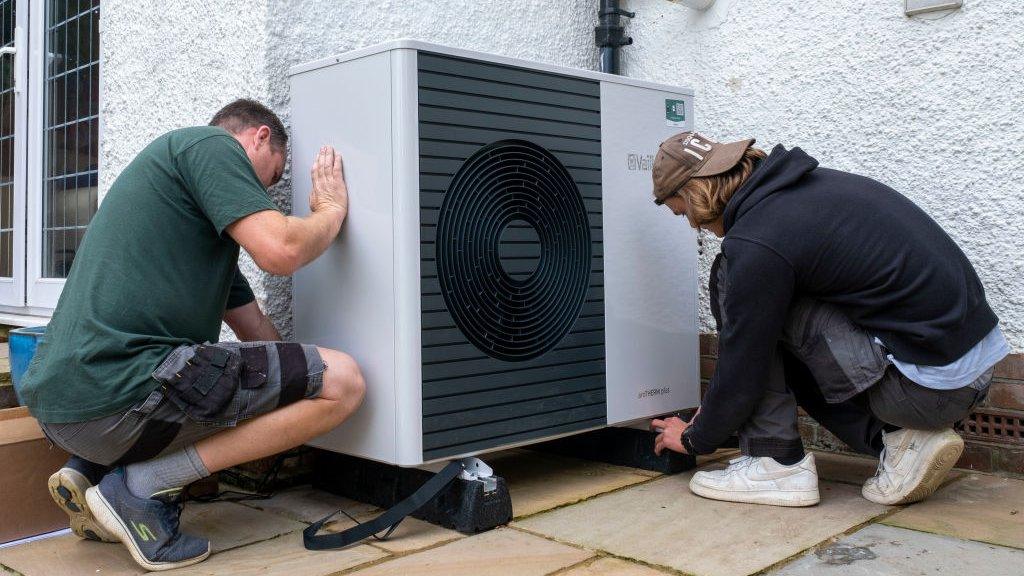
- Published28 November 2023
